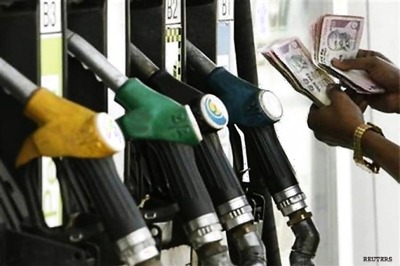
views
In recent years, a concerning trend has emerged in the realm of kidney health among young adults. The incidence of reduced kidney function in this demographic has been on the rise, necessitating awareness and education about its correlation with an increased risk of developing kidney cancer. In India, where healthcare data has highlighted an upsurge in kidney-related ailments, the percentage of young adults affected by kidney cancer has notably increased, shedding light on a critical health concern that demands attention.
According to National Centre for Biotechnology Information, (NCBI), renal cell carcinoma (RCC) was more frequent in younger people in India. Additionally, one third of the patients were less than 50 yr of age and only 10.4 per cent patients had tumour of less than 4 cm (T1a) which is an ideal size for partial nephrectomy. On the other hand, in western countries, more than 50 percent of RCC patients when diagnosed have lesions less than 4cm and therefore more frequently undergo nephron sparing surgery (partial nephrectomy) as opposed to radical nephrectomy (complete removal of kidney). Younger patients of <39 yr of age had relatively lower survival rates.
Research has further revealed a compelling correlation between compromised kidney function and the likelihood of developing kidney cancer prematurely. Studies suggest that individuals grappling with reduced kidney function face a heightened risk of encountering kidney cancer at a younger age. The impairment in kidney function not only compromises the organ’s ability to filter waste but also elevates the vulnerability to malignancies, including kidney cancer.
End stage renal disease (ESRD) with long term dialysis has long been known to be risk factor for development of renal cancer. Those on long-term kidney dialysis have an increased risk of developing kidney cysts and this increases the risk of kidney cancer. However few studies have also shown that this risk may be due to the kidney disease rather than the dialysis. The cellular and molecular mechanisms underlying both conditions are closely related. Renal physiology is adapted to operate with a limited oxygen supply, making the kidney remarkably equipped to respond to hypoxia. This tightly regulated response mechanism is at the heart of kidney cancer, leading to the onset of malignant cellular phenotypes
Factors contributing to heightened risk:
Several factors contribute to the increased susceptibility of individuals with compromised kidney function to kidney cancer. Chronic kidney diseases, inherited conditions, and certain genetic predispositions have been identified as key contributors. Additionally, prolonged exposure to certain environmental toxins, occupational hazards, and lifestyle habits, including smoking and unhealthy dietary choices, can further exacerbate the risk.
- Demographics and susceptible patient groupsCertain demographics or patient groups are more vulnerable to experiencing the connection between reduced kidney function and early onset kidney cancer. The average age of people when they are diagnosed is 64 with most people being diagnosed between ages 65 and 74. However, recently young adults with a family history of kidney diseases or those diagnosed with conditions like polycystic kidney disease are at an increased risk. Moreover, few studies have shown increased incidence of renal cell carcinoma associated with chronic health conditions such as diabetes and hypertension especially in females.
- Genetic predisposition and hereditary factorsGenetic predisposition plays a significant role in determining an individual’s susceptibility to kidney cancer. Inherited conditions such as von Hippel-Lindau disease, hereditary papillary renal cell carcinoma, and hereditary leiomyomatosis are associated with an increased risk of kidney cancer at an early age. These cancers may affect both kidneys and put an individual at an overall risk of decreased renal function after treatment. Understanding one’s genetic predisposition and familial history can aid in early detection and proactive management.
- Chronic kidney diseases and renal complicationsIndividuals with chronic kidney diseases (CKD) are at an increased risk of developing kidney cancer. Persistent kidney issues, including conditions like renal cysts or long-term dialysis, heighten the vulnerability to kidney cancer. Managing and treating underlying kidney conditions effectively can aid in reducing the risk of cancer development.
- Impact of lifestyle choices and environmental factorsThe impact of lifestyle choices cannot be overstated in the context of kidney health and cancer risk.. Addressing these factors through lifestyle modifications plays a pivotal role in mitigating the risk associated with reduced kidney function. Research has often shown a link between kidney cancer and obesity. Smoking tobacco doubles the risk of developing kidney cancer.
- Occupational exposures and environmental toxinsCertain occupations involve exposure to harmful substances or chemicals that may increase the risk of kidney cancer. Workers in industries such as manufacturing, agriculture, and mining, where exposure to substances like asbestos, cadmium, benzene, and certain herbicides occurs, face a heightened risk. Minimizing exposure to these occupational hazards and adhering to safety guidelines is crucial in reducing the risk of kidney cancer.
Strategies for risk minimization and early detection
Despite the concerning link between reduced kidney function and kidney cancer in young adults, there are strategies individuals can adopt to minimize their risk and detect cancer at an early stage. Regular health check-ups, especially for those at higher risk due to medical history or lifestyle factors, can aid in early detection. Additionally, adopting a kidney-friendly diet, maintaining a healthy weight, staying hydrated, avoiding smoking, and minimizing exposure to toxins are crucial steps in reducing the risk of chronic kidney disease.
Although routine screening for renal cancers is not advisable, people with high risk of disease as those with genetic predisposition and renal cancer syndromes should undergo screening protocol with clinical examination and imaging to look for any evidence of renal or other cancers associated with syndromes.
















Comments
0 comment